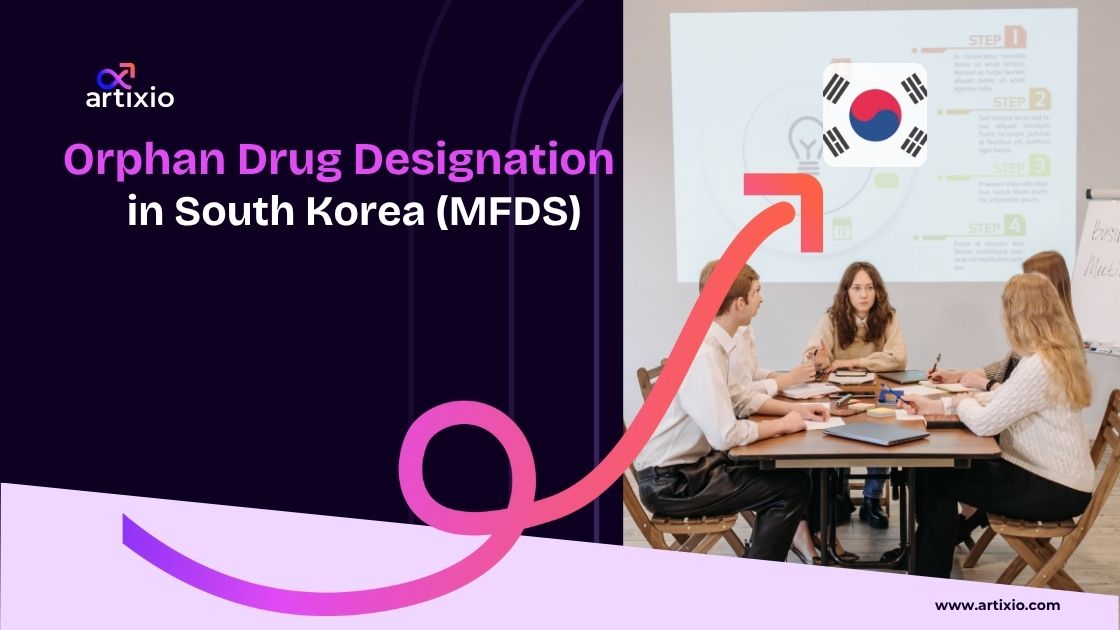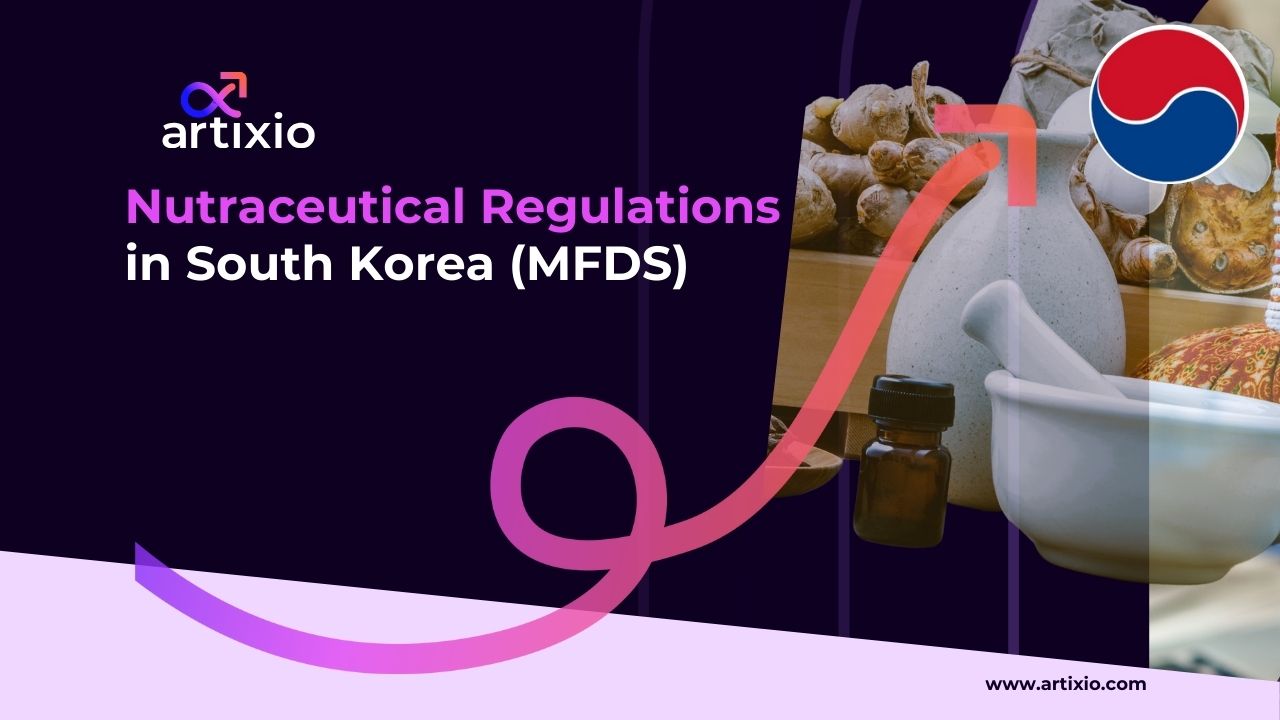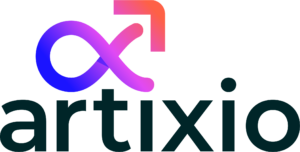- Home
- >
- South Korea
- >
- Regulatory Affairs
Regulatory Affairs Consulting Services in South Korea
Get professional MFDS regulatory affairs support in South Korea. From strategy to submissions, Artixio simplifies product registration and compliance.

Services We Offer
Leading Regulatory Affairs Solutions in South Korea by Artixio
Getting the regulatory approval in South Korea can be tough for life sciences companies due to the country’s strict and detailed guidelines. Artixio offers regulatory affairs consulting services in South Korea to help simplify this process and support a smooth market entry.
Artixio provides seamless end-to-end regulatory affairs support in South Korea from product registration to post-marketing product compliance with the expert team of consultants.
Regulatory Authorities in South Korea
| Authority | Scope |
|---|---|
| Ministry of Food and Drug Safety (MFDS) | Central regulatory body responsible for the oversight of food, pharmaceuticals, medical devices, cosmetics, and related products in South Korea. |
| National Institute of Food and Drug Safety Evaluation (NIFDS) | An affiliate of the MFDS, NIFDS conducts scientific evaluations and research to support regulatory decisions, particularly in the assessment of pharmaceuticals and biologics. |
| Medical Device Information & Technology Assistance Center (MDITAC) | MDITAC assists in the certification and approval processes for medical devices, especially those classified as Class I and II, by reviewing technical documents and ensuring compliance with regulatory standards. |
Regulatory Affairs Process in South Korea
South Korea follows a structured and category-specific yet commonly aligned regulatory framework under the supervision of the Ministry of Food and Drug Safety (MFDS). While the process varies by category type, the general approval pathway typically includes the following key steps:
Step 1 - Product Classification
Step 2 - Pre-Market Authorization Application
- Safety and efficacy data (clinical or non-clinical, as applicable)
- Manufacturing process details
- Quality control measures
- Risk management and labeling information
- GMP or KGMP compliance documentation
Step 3 - Good Manufacturing Practice (GMP) Compliance
Step 4 - Technical Review and Evaluation
Step 5 - Product Approval
- Product Approval Certificate (pharmaceuticals, biologics)
- Device Certification or Approval (medical devices)
- Functional Cosmetic Approval
- Health Functional Food Certification
- Veterinary Product License
Step 6 - Post-Market Obligations
- Renewal every 5 years
- Ongoing safety monitoring (e.g., PSURs, adverse event reporting)
- Labeling updates or product variations, if applicable
Different Types of Drug Approval Processes in South Korea
❖ New Drug Approval (NDA) or Biological License Application (BLA): New Drug Approval (NDA) or Biological License Application (BLA) is mandatory for all the new drugs that have never been sold in South Korea.
❖ Generic Drug Approval: General Drug Approval is a simple process for registration of generic drugs (drugs that are already approved with brand name).
❖ Biosimilar Drug Approval: Biosimilar Drug Approval is the process required for authorizing drugs similar to already approved brand name biological products.
❖ Conditional Approval: It is required for drugs that address urgent medical needs, such as treatments for rare diseases or pandemics. These may receive expedited review with post-marketing surveillance requirements.
Full Regulatory Support for Market Entry into South Korea
Why Choose Artixio For RA Services in South Korea?


Are you looking for regulatory affairs company in South Korea?
Artixio supports a smooth, end-to-end registration process for pharmaceuticals, medical devices, cosmetics, nutrition, biologics, and veterinary products. Our highly experienced consultants bring deep knowledge of MFDS requirements and tailor regulatory affairs strategies that ensure compliance, enable faster market entry, and support long-term product success.
FAQs
Which documents are required to register a product in South Korea?
What are the major compliance risks in the South Korean regulatory landscape?
Are there any special regulatory pathways for innovative products or orphan drugs?
How frequently do post-approval changes need to be reported to MFDS?
Still Have Questions ?
Specialized Registration Services Across Multiple Industries
Related South Korea Services
Regulatory Affairs Across Multiple Countries

India

Singapore

Mexico

Brazil

Vietnam

Malaysia

Argentina

Colombia

Taiwan

China

European

Thailand

Indonesia

Philippines

USA

Japan

Qatar

South Korea
Insights from Artixio - Tips & Articles

Orphan Drug Designation in
Orphan Drug Designation (ODD) is regulated by Ministry of Food and Drug Safety (MFDS)...

Biologics and Biosimilars Regulations
The Korean pharmaceutical market is estimated to be worth $24.3 billion in 2019, and...

Nutraceutical Regulation and Registration
Today, we eat to ease hunger and don’t have the time to consider what...




















